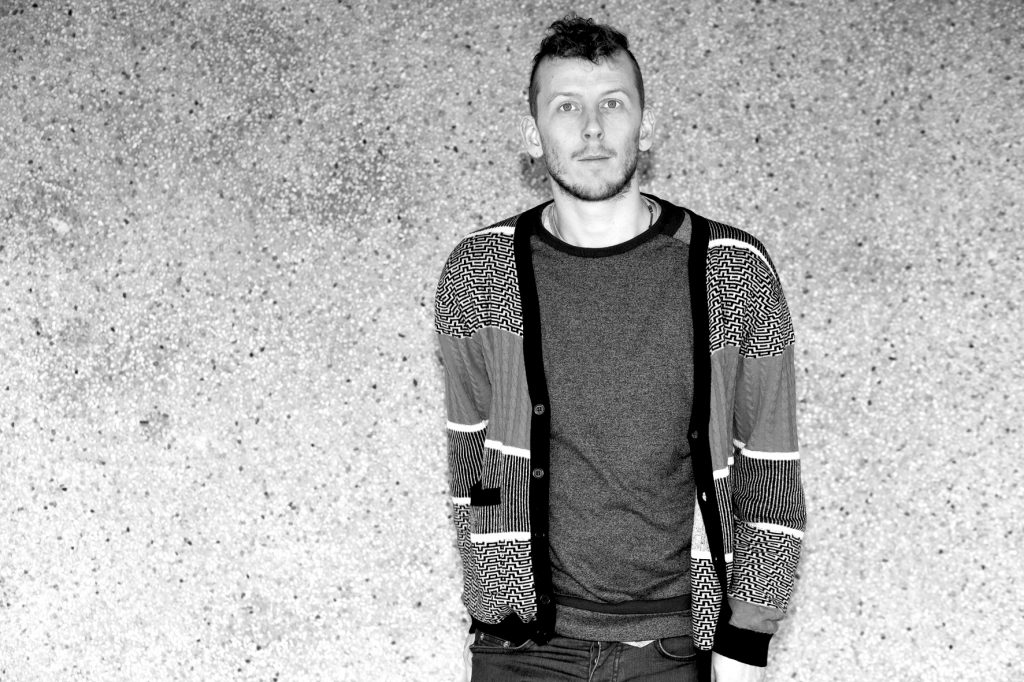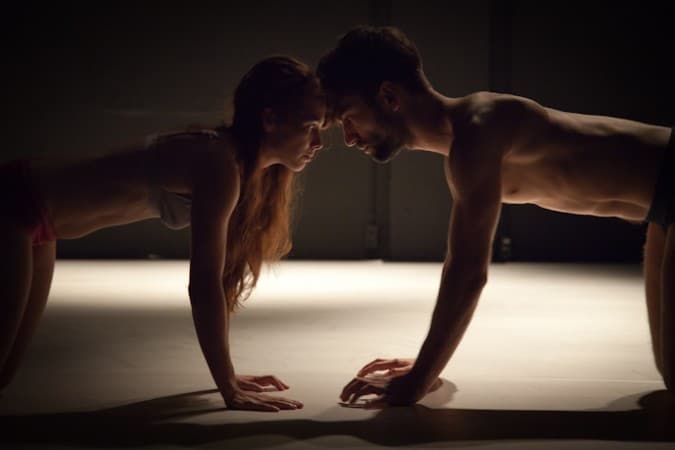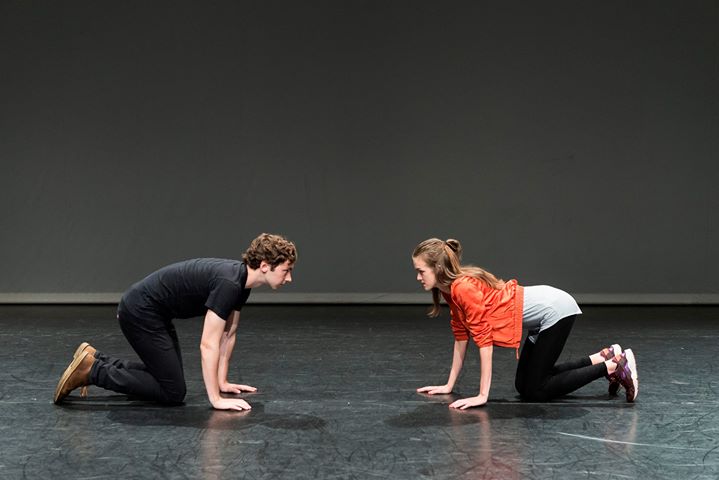While the latest work by Jan Martens, The Common People (2016), was at Amsterdam's Stadschouwburg last weekend, Utrecht's Theater Kikker is showing two older hits this week: Sweat Baby Sweat (2011) and The dog days are over (2014).
Sweat and Dogdays are blockbusters and have already toured the world. They can now be seen at Kikker as part of a three-day programme: Grip Evenings, which also features work by Martens-affiliated artists: films by Lukas Dhont and by Laura Vanborm; performances by Steven Michel, Bára Sigfúsdóttir and Rodrigo Sobarzo, and an installation by Luis Rios Zertuche and Connor Schumacher.
Grip
It is Martens' first act, after he met last summer with Grip was one of the few newcomers in the distribution of structural performing arts subsidies in Flanders. Grip not only produces the work of Jan Martens, but also aims to be a choreographic platform for related makers, or as Kikker calls it, companions.
To his credit, Martens is immediately putting his money where his mouth is and not just committing his rising star to developing and promoting his own work. Martens' agenda is fully booked until 2020. Moreover, the Antwerp arts centre deSingel appointed Martens as 'creative associate' for the next five years, in addition to Daniel Linehan and the men of Berlin, a wonderful combination. Jan Martens is doing well. Why?

Necessary
Martens (1984) began his career in the Netherlands with idiosyncratic dance, which lacked any kind of pretentious aesthetics. On the border of pop and punk, in a steady combo of contemporary expression and radical, minimalist deconstruction, Martens manages to reduce dance to the exchange of mere necessary gestures.
Sex
At Sweat Baby Sweat, as well as in other duets like A small guide on how to treat your lifetime companion (2011) or Viktor (2013), Martens uses wordless intercourse between partners to thematise intimacy or sexuality, without ever becoming too literal or easily obscene. Shyness or over-shouting yourself, it is all allowed, as long as there is no pretending.

Touching each other, often relegated to a technical tool in dance, has great value with Martens, as does the exchange of glances. What happens between the dancers and between them and the audience is crucial. His work is primarily not about the aesthetics of movement, but about making resonances in and between bodies tangible.
Duets
It must be because of that touch that duets have found such a natural place in Jan Martens' oeuvre. It is easy to zoom in on the exchange, the in-between space where the necessary manipulation takes place and sensitivities arise. Martens loves the 'exposure' Of performers in duo.

In his latest work The Common People this mechanism comes to the fore to the maximum. Not professional dancers, but more than 40 volunteer movers enter the stage two by two, for a so-called 'blind date', an encounter with an unknown partner.
The performers do not control their physical effort and expression as professionals do. The performance has a certain naivety or innocence, which makes the performers vulnerable, but also in a way invulnerable: having to do the job together, in front of a large audience, when there is no turning back. The desire to do well is always honoured by Martens. He is not looking for more humiliation and schadenfreude. We already have enough of that in this world, online and offline.
ordinary people
The dog days are over - the second group piece Martens has made since his 2010 debut in Tilburg, which finally gained him some popularity within the otherwise more serious dance circuit in 2014 - was of course made with professional dancers. But precisely in Dogdays he tries to undermine the aura and convention of the 'dancer'. That body that never shows a shred of pain, boredom or any unwellness whatsoever, that is always correct and has learned to remain neutral in everything, while performing someone else's orders, that body is choreographed to smithereens by Martens.
Exhaustion is a tried and tested tool in dance, which is rightly much objected to, because of its melodramatic side, see for instance French choreographer Boris Charmatz in his book Entretenir. But you won't encounter the exhausted dancer as a victim of either his own urges or the machinations of a perfidious society with Martens. With Martens, people are always fighting with themselves.
Review
Through the deployment of simplicity, repetition and duration, Jan Martens' work not only evokes a certain fascination or trance, but also turns that fascination into its opposite. In the precise deployment of repetition, nothingness arises, pretension lapses and fatigue, boredom and an unwanted sincerity take over.
Distancing yourself, becoming aware of your own gaze and what someone else's does, voyeurism, the judgements that involuntarily enter into the act of watching and co-determining - the spectator is also put to the test in the repetition or repetition. Martens thus asks both dancers and spectators to surrender to what is available: ordinary people and the things that go with them: vanity, fear, competition, desire.
bravura
Martens' work thus also has something to do with comic duos and clown acts, where partners alternate the role of declarer and you can look through one to the other. The sentiment of 'getting the job done together' is not only useful for a fraught topic like sexual identity, it is also quite appropriate. Despite working in silence and the serious tone of much of the work, there is always a thread of comic relaxation running through each performance. The ridiculous is true. And self-deprecation a great thing.
Indirectly, Jan Martens seems to harbour a certain attitude, of open-mindedness, of taking risks and daring to fall flat on your face, in the knowledge that that is precisely what moves things forward. Unlike the tradition of dance, where the ability and display of control are paramount, with each performance he expresses his curiosity about the moments of failure and fallibility, which appeal to generosity and trust in the other. A trust that, by the way, is by no means blind, but starts from acknowledging difference and distance.
